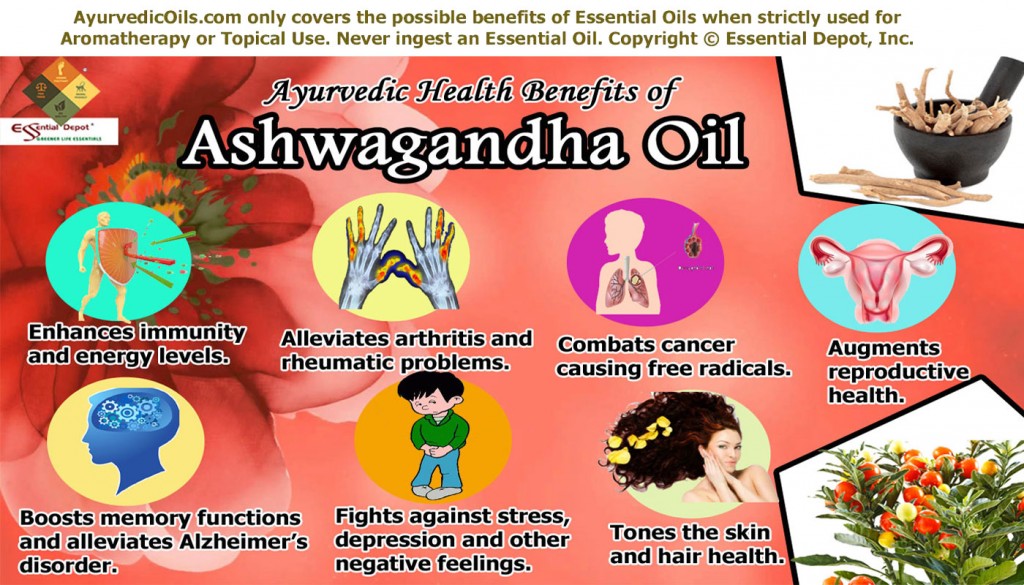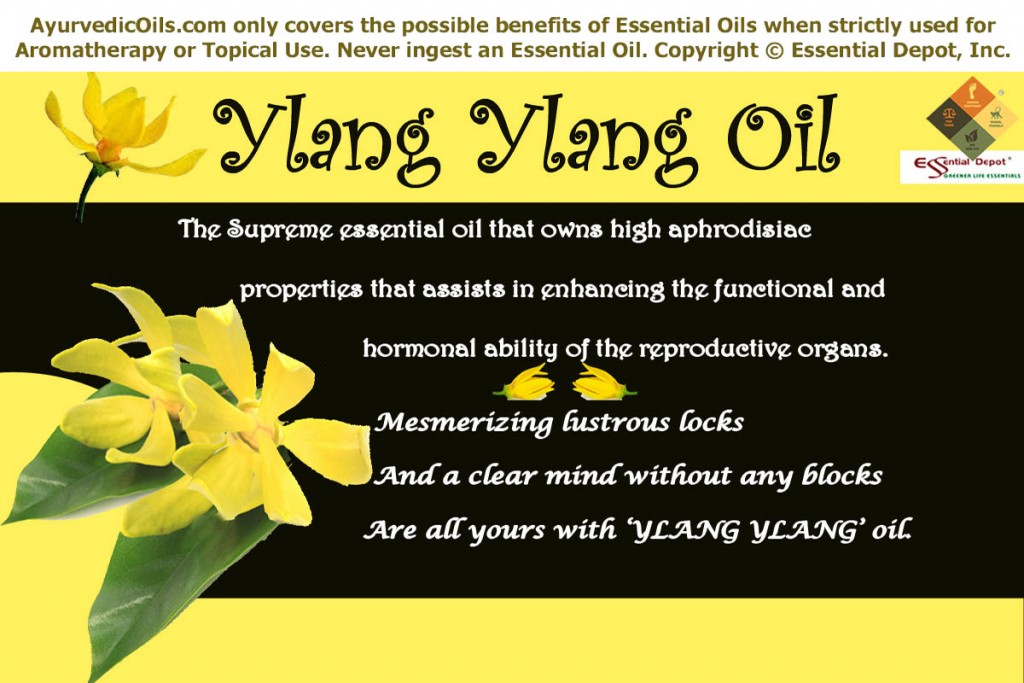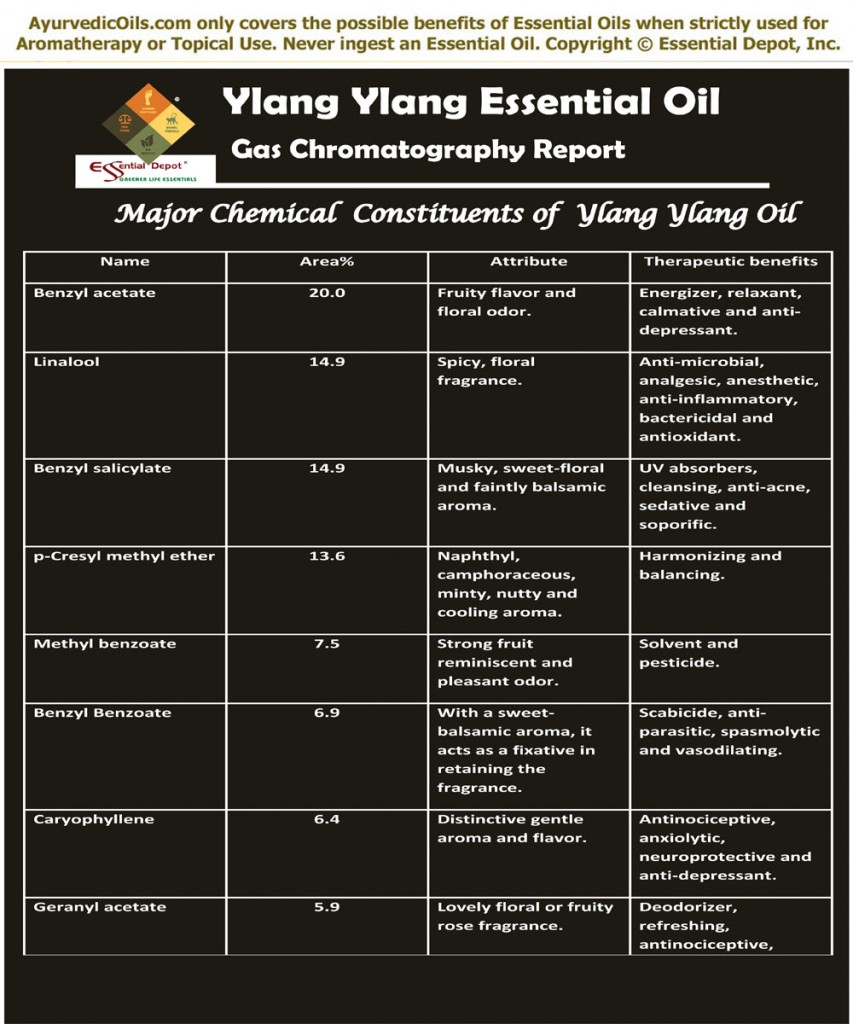 Stand tall like a stallion and hold your head up with the strength and inevitable power of Ashwagandha, the most potent and revitalizing herb of the Ayurvedic healing. Often called as ‘Indian Ginseng’ for its enormous and instant energizing attributes, the word ‘Ashwagandha’ means the ‘smell of horse’, as the fresh roots have a horse-like odor.
Stand tall like a stallion and hold your head up with the strength and inevitable power of Ashwagandha, the most potent and revitalizing herb of the Ayurvedic healing. Often called as ‘Indian Ginseng’ for its enormous and instant energizing attributes, the word ‘Ashwagandha’ means the ‘smell of horse’, as the fresh roots have a horse-like odor.
Ayurvedic writings record the usage of this vital herb as a rasayana, meaning tonic for alleviating extensive range of illnesses from cancer to impotency. Dr. M. Ali in his book ‘Ashwagandha – The Stress Buster’ quotes Ashwagandha as an anti-stress herb with curative, relaxing, preventive, restorative and sedative properties and has the power to alleviate stress, the silent killer and the root cause of many problems including strokes, impotence, heart attacks, blood pressure, depression and stomach ailments.
Purchase Ashwagandha Essential Oil – Retail – 4 oz – CLICK HERE
Purchase Ashwagandha Essential Oil – Wholesale – CLICK HERE
Historical uses and significance of Ashwagandha herb and its essential oil:
Lovingly called as ‘Winter cherry and Indian ginseng, Ashwagandha is botanically called as Withania somnifera and is a member of the nightshade or Solanaceae plant family. The word ‘somnifera’ means ‘sleep-inducing’ and Ashwagandha is known for its potential to promote sleep and has been used in the treatment of insomnia.
Indigenous to the Indian subcontinent, Ashwagandha is one among the most popular herb in the history of Ayurvedic healing. Few sources also state that this herb is native to Africa, Australia and the Eastern parts of Asia. Ashwagandha is also found growing naturally in Sri Lanka and Pakistan.
Ashwagandha has been used for more than 4,000 years in the world of traditional medicine, including Ayurveda, Homeopathy, Siddha, Traditional Chinese Medicine and Unani. The tribal populace in Africa is said to have used this herb initially in the treatment of inflammatory medical conditions and fevers.
Ayurvedic use of Ashwagandha has been documented in the Ayurvedic texts like Charaka Samhita and Sushruta Samhita and certain records also state that Ashwagandha is popular since the sacred teachings of the Ayurvedic Rishi, Punarvasu Atriya. Ashwagandha is recommended in Ayurveda for longevity, physical and mental wellness of the aged, reproductive health and as a brain tonic for children.
The Ashwagandha root paste has been applied for treating joint inflammation, swelling, ulcers, pimples, piles, carbuncles, boils, colic and leucorrhoea. Traditional remedies also prescribe this powerful root in treating venomous snake and insect bites, including scorpion stings. It is used in the Middle East countries for its ability to support normal sleep patterns and persuade a strong inflammatory response.
Used as a Rasayana or natural tonic in Ayurveda, Ashwagandha has been a promising Ayurvedic remedy for rheumatism, insomnia, arthritis, impotence, loss of libido, improper blood circulation, constipation, goiter, nervous breakdown, fatigue and depression. The most common use of this herb since the traditional times is for the encumbrance from old age and emaciation of children.
The leaves of this plant bear a bitter taste and have been used in curing fever, swellings, tubercular glands and tumors. Numerous research studies have witnessed the power of Ashwagandha in the treatment of respiratory problems, cardiovascular diseases, loss of energy along with psychological and physical stress. Chyawanprash is one among the most popular Ayurvedic blend with Ashwagandha, Amla or the Indian Gooseberry and numerous other herbs.
Chemical constituents and remedial properties of Ashwagandha essential oil:
The therapeutic properties of Ashwagandha essential oil are anti-stress, adaptogenic, aphrodisiac, astringent, antioxidant, rejuvenative, anthelmintic, tonic, diuretic, stimulant, anti-rheumatic, antibacterial, anti-ulcerogenic, anti-tumor, anti-inflammatory, anti-carcinogenic, anti-arthritic, cardio-protective, immunomodulatory and anti-depressant.
The major chemical components in Ashwagandha essential oil are alkaloids (anaferine, isopelletierine, anahygrine, cuseohygrine, etc.), steroidal lactones (withaferins, withanolides) and saponins.
Ayurvedic health benefits of Ashwagandha essential oil:
Ayurveda is precisely called as the Mother of all the other healing sciences on earth for its enormous holistic healing principles that aim in healing and preventing illnesses for more than 5,000 years.
Acharya Dhanvantari, known as the Ayurvedic God of medicine and physician of Gods is said to have gifted Ayurveda for the wellness of humanity. Ayurveda is a part of Atharvaveda, one amongst the 4 sacred books or Vedas of the Indian mythology.
Ayurveda is the only medicinal system that considers human body as a temple and the soul that lives in is regarded as the symbol of divinity. With this thought of nobility, Ayurveda recommends mankind to keep their mind, body and soul clean, happy and content.
The principles of Ayurveda rely on nature for everything as it strongly trusts that everything on earth is a vital part of nature. The visible proof behind this theory is that all things in nature are made up of five basic elements of nature, namely fire, water, earth, space and air.
Human body is also made up of these five elements, where earth is present in the form of bones and muscles; water represents blood and fluids in the system; air is vital for breathing; space is the soul that dwells in and fire is the essential energy for body temperature, metabolic functions and certain other vital activities of the system.
Ayurveda never goes by the fact that ‘one size fits all’, as it trusts that every human being is a distinctive part of nature composed with a unique individual constitution known as prakriti. It is a combination of three biological energies called as doshas. They are vata, pitta and kapha. Every individual has a predominance of any one of these doshas that acts as a deciding factor in determining the character, personality, attributes and behavioral patterns.
Absolute balance between these doshas as per the law of nature indicates health and doshic imbalances due to climatic conditions, lifestyle changes, irregular food habits and moral vitiations lead to illness.
Ayurvedic healing aims at treating the root cause of an illness instead of its symptoms alone. This aids in curing the disease initially and preventing it in the future as well. Ayurveda prescribes natural remedies that go well with the individual constitution of a person, even if a group of people are affected by the same medical condition.
The prime Ayurvedic remedies are plant essential oils, simple physical exercises, herbs, yoga, prayers, Pranayama (Ayurvedic breathing exercises), meditation, Abhyanga or Ayurvedic massaging, Panchakarma or Ayurvedic detoxification techniques and Ayurvedic routine.
Ashwagandha essential oil is said to pacify vata and kapha doshas and increase pitta energy.
It’s time to look into the most significant Ayurvedic health benefits of Ashwagandha essential oil.
 1. Combats cancer causing free radicals:
1. Combats cancer causing free radicals:
Ashwagandha is a miraculous Ayurvedic herb that possesses antioxidant and anti-tumor properties that aid in combating the harmful free radicals and curb the growth of cancerous tumors in the system. The anti-antigenic attribute of this natural medicine helps in preventing the malignant tumors from creating new blood vessels for assisting its uncontrolled growth.
Being an immune-stimulant and rejuvenating essential oil, Ashwagandha strengthens the immune system, aids in resisting the effects of chemotherapy and supports quicker recovery. Many research studies have witnessed the cancer inhibiting potential of Ashwagandha, which works by controlling the ability of reproducing of the cancer cells.
A 2006 study on the “Ancient medicine, modern use: Withania somnifera and its potential role in integrative oncology.” By Winters, states “with its polypharmaceutical use, confirming antioxidant, anti-inflammatory, immune-modulating, and antistress properties in the whole plant extract and several separate constituents, Withania somnifera reduces tumor cell proliferation while increasing overall animal survival time.”
This study concludes by stating “Withania somnifera also reduces the side effects of chemotherapeutic agents cyclophosphamide and paclitaxel without interfering with the tumor-reducing actions of the drugs. With its cytotoxic and tumor-sensitizing actions, Withania somnifera presents itself as a novel complementary therapy for integrative oncology care.”
Ayurveda prescribes the use of Ashwagandha oil in Abhyanga or Ayurvedic massaging for treating cancerous disorders. Massaging your system with 10 drops of Ashwagandha oil blended with 5 drops of Parsley seed oil, 5 drops of Turmeric essential oil, 5 drops of Tangerine oil along with 25 ml of coconut oil can grant innate energy to your cells for fighting against free radicals and controlling the growth of cancerous cells.
The cancer-fighting attributes of Ashwagandha oil along with Parsley, Turmeric and Tangerine oils pass on to the bloodstream by penetrating through the skin cells and work on effectively without causing any side effects. You can also add 1 drop of Ashwagandha oil along with 1 drop of Frankincense oil to your warm bathing water for leaving you fresh and fragrant all through the day.
2. Alleviates arthritis and rheumatic problems:
According to Ayurveda, aggravation of vata and excess of kapha dosha contribute to vulnerable medical conditions like rheumatism and arthritis. With its ability to reduce kapha vitiation and treat vata aggravation, Ashwagandha is one among those best Ayurvedic remedies for alleviating pain, swelling, inflammation and other discomforts associated with arthritis and other rheumatic conditions.
When used as a massage oil (3 drops of Ashwagandha oil + 2 drops of Rose Geranium oil + 2 drops of Tarragon oil with 5 ml of Sesame oil), Ashwagandha penetrates deeply into the system and aids in relaxing the muscles, strengthening the bones and nourishing the tissues.
This also helps in instilling complete relaxation in the nervous system, promote blood circulation, reduce muscular pain, and alleviate inflammation by promoting the frequency of urination and opening of the sweat pores through which the toxic remains, salt and uric acid in the body are eliminated.
The tonic, analgesic or pain-reducing, diuretic, anti-rheumatic, anti-arthritic, anti-inflammatory, anti-oxidant and relaxant properties of Ashwagandha oil makes it a great natural remedy for osteoarthritis, rheumatoid and muscular problems, used often by athletes, dancers and body builders. Using 2 drops of Ashwagandha oil in warm compress can support the healing process.
The pain-relieving potential of Ashwagandha oil is often compared to popular pain-relieving agents in the pharmaceutical industry like aspirin and phenylbutazone. This oil is also believed to prevent inflammation and muscular strains, grant flexibility to the muscles and vigor to the joints.
3. Enhances immunity and energy levels:
A healthy immune system is the basis for longevity and heartiness. The disease-fighting or resisting ability of a person is determined by his immune power. The white blood cells (WBC) or leucocytes in the body are cells of the immune system are also known as the police force of the body. These cells are involved in shielding the human body against foreign bodies and infectious diseases.
Leucocytes are present all over the body, including the lymphatic system and blood. Ashwagandha oil has the power to strengthen the immune system by increasing the count of leucocytes or white blood cells.
This promising herb is also called as the ‘Ojas enhancing’ herb with plethora of remedial values.
Ayurveda defines ojas as the subtle or cultured level of energy gained from healthy food. Required level of Ojas in the system is a symbol of well-built immunity, inner consciousness, healthy complexion, mental clarity, hale and heartiness and physical wellness. Decreased ojas or Ojakshaya is an indicator of low immune power as it is in a person affected by HIV.
Ashwagandha is held high in Ayurvedic medicine for its effectiveness in enhancing ojas. This in turn helps in augmenting immune power, keeping away from infections and diseases and aids in recovering quickly from sickness, while rejoicing absolute health and wellness.
Adding 1 drop of Ashwagandha oil with 1 drop of Sandalwood oil and 1 drop of Vetiver oil in diffuser, vaporizer or burner during prayers, meditation and Pranayama can help in augmenting the Ojas, strengthen your immune system, help retain youthfulness, revitalize the senses, relieve from fatigue and insomnia, prevent aging and invigorate the entire system.
The uniqueness of this blend is that all these 3 oils are known for their power to enhance the innate wisdom and kindle your sense of sacredness and divinity.
4. Boosts memory functions and alleviates Alzheimer’s disorder: Ashwagandha is popularly known as a Rasayana in Ayurveda and is said to belong to a sub-category called as Medhyarasayanas, where the word ‘Medhya’ refers to the human mind and its intellectual and cognitive powers.
Ashwagandha essential oil has the ability to wrestle the fall in cognitive levels caused due to brain cell degeneration. It also assists in reducing cortisol levels and enhancing cognition levels.
Inhaling the aroma of this oil by adding 1 drop of Ashwagandha oil with 1 drop of Brahmi oil and 1 drop of Rosemary oil in diffuser especially in the early hours of the day during meditation, yoga, prayers and learning can promote the functions of the brain, augment your memory power, increase your intellect and help fight against Alzheimer’s disease.
5. Fights against stress, depression and other negative feelings: The adrenal glands in the endocrine system are responsible for a person’s ability to manage stress and stress-related negative effects. When a human body is stressed, the adrenal glands augment the level of cortisol secretion.
Cortisol is called as the stress hormone of the system that is related to the ‘fight or flight’ response of the body. This hormone is responsible for the production of negative effects in the body like lack of concentration, fatigue, weak memory, anxiety, mental exhaustion, sleeplessness, pain, anger, weight gain, especially in the abdominal area and lack of interest.
The presence of the bioactive compounds called glycowithanolide in Ashwagandha aid in reducing the cortisol levels in the body. Glycowithanolide is a type of steroidal lactone that imitates the body’s own relaxing and stress-alleviating hormones. This works by decreasing cortisol levels in the system to strike absolute balance in the body.
Ashwagandha essential oil has adaptogenic, stimulating, relaxing, mood enhancing, stress-reducing, nervine, sedative and rejuvenative properties that help in treating insomnia by promoting peaceful sleep, alleviating fatigue, cardiovascular problems, depressive feelings, cognitive dysfunction and low immunity.
Numerous scientific studies on the anti-stress and adaptogenic effects of Ashwagandha oil have concluded that this herb is a powerful Ayurvedic remedy for treating and preventing stress and stress induced health conditions including premature graying, hypertension, arteriosclerosis, malignancy, diabetes and arthritis.
Adding 5 drops of Ashwagandha oil with 5 drops of Lavender oil and 5 drops of Patchouli oil along with 20 ml of Jojoba oil in a massage blend can help in reducing stress, fatigue and sleeping difficulties.
You can also add 2 drops of Ashwagandha oil in warm bathing water or air freshener before going to bed to enjoy the richness of a relaxed mind and a comfy sleep.
6. Tones the skin and hair health:
Ashwagandha has vata-pacifying properties that help in retaining the natural glow and suppleness of the skin. The antioxidant effects of this oil combat the growth of free radicals that are responsible for causing aging symptoms like wrinkles, fine lines, dark spots, blemishes and dullness.
The essential oil of Ashwagandha is also an excellent remedy for healing wounds, keratosis, inflammation, skin ulcers, carbuncles, swelling, cuts, bedsores etc. It is also used for moisturizing rough and dry skin with its collagen stimulating attributes.
This is mainly due to the presence of steroidal compounds that enhance the level of estrogen in the body. This aids in augmenting the natural levels of oil in the skin and promote the production of collagen, which in turn retains the young and healthy looking skin. Ashwagandha oil is also known for its ability to promote the secretion of structural protein vital for the skin.
Gently applying 2 drops of Ashwagandha oil with 2 drops of Bitter orange oil, 2 drops of Frankincense oil along with 5 ml of Jojoba oil on the affected parts can help in repairing the skin problems without any harmful effects.
Healthy and lustrous hair is the most prized jewel of mankind, especially women. Ashwagandha has been the secret behind the long, shiny and voluminous locks since the traditional times. Slightly warm the blend of 3 drops of Ashwagandha oil with 2 drops of Ylang Ylang oil, 2 drops of Rosemary oil, 2 drops of Lemon oil and 2 drops of Lavender oil along with 20 ml of Almond oil.
Slowly massage this Ayurvedic hair oil onto your scalp and hair for strengthening the hair follicles, clearing scalp problems like dandruff and itchy scalp, fight hair loss, prevent premature balding, graying and hair breakage due to increased cortisol levels.
It also helps in treating damaged hair and dandruff by flushing out the excess toxins in the system. Adding 2 drops of Ashwagandha oil to your regular shampoo is also an excellent idea to support the health of your hair and scalp.
7. Augments reproductive health:
Ashwagandha is the most powerful aphrodisiac known to humanity since the dawn of the Ayurvedic era. Physicians of various traditional and modern medicines claim Ashwagandha as the most promising and potent aphrodisiac on earth.
With its immune and ojas enhancing abilities, Ashwagandha is said to grant the vigor and vitality of a horse in human beings as well. As an influential adaptogen, Ashwagandha uplifts the system’s defense mechanism against various disease causing infections by augmenting the cell-mediated immunity. It also curbs all kinds of cellular damage caused by free radicals with its antioxidant values.
Ashwagandha promotes a healthy balance of the reproductive system by increasing the quality of semen and count of sperms, thus expanding the possibilities of fertility and conception.
It is also recommended by Ayurvedic professionals for treating loss of libido, impotence, premature ejaculation, lack of sexual interest, erectile dysfunctions and supports the ability to last longer in bed.
It is also prescribed for treating reproductive problems in women like infertility, white discharge, weak uterus, polycystic ovarian syndrome and certain other gynecological disorders.
Ashwagandha is also effective in strengthening the uterine walls, ovaries and ligaments to support pregnancy. Ayurveda also states that this herb helps in improving the quality of the egg or ovum.
The most impressive aphrodisiac blend can be prepared at home with 2 drops of Ashwagandha oil with 2 drops of Patchouli oil, 2 drops of Jasmine oil, 2 drops of Clove oil and 2 drops of Ylang Ylang oil with 50 ml of coconut oil. Gently massage your system with this Ayurvedic blend for supporting your active sexual life and healthy reproductive system.
Adding 2 drops of Ashwagandha oil in warm bathing water and your vaporizer, before going to bed can add up the spice to your intimate love.
Thought for the day:
I believe a leaf of grass is no less than the journey-work of the stars.
–Walt Whitman
Suggested Reading:
- Ashwagandha & Brahmi – Fight stress and chill out with the king and queen of Ayurvedic medicine by James Lee
- Healing with the King: Ashwagandha: The Master Herb in Ayurveda Medicine (Learning about Medicinal Herbs within India’s Ayurvedic Medicine Book 4) by Ryder Management Inc.
- Herbs for Stress & Anxiety: How to Make and Use Herbal Remedies to Strengthen the Nervous System. A Storey Basics® Title by Rosemary Gladstar
- Ashwagandha, Stress and Anxiety Herb – Health Educator Report #37 by C.N.C. Billie J. Sahley Ph.D.
- Ashwagandha – the stress buster by Dr. M. Ali
Reference Links:
- Withania somnifera by Wikipedia
- An Overview on Ashwagandha: A Rasayana (Rejuvenator) of Ayurveda Narendra Singh, Mohit Bhalla, Prashanti de Jager, and Marilena Gilca, International Institute of Herbal Medicine (IIHM), published in the African Journal of Traditional, Complementary and Alternative Medicines
- Health Benefits of Ashwagandha or Indian Ginseng by Organic Facts
- How Ashwagandha can be used as sexual rejuvenator by Ayurvedic and Natural Home Remedies for a healthy living
- Ancient medicine, modern use: Withania somnifera and its potential role in integrative oncology by Winters M, published in the Alternative Medicine Review.



